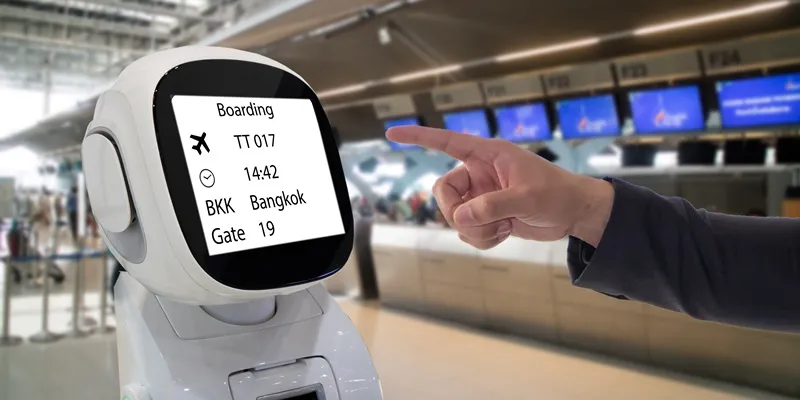How to harness AI in making corporate travel management more efficient
Artificial intelligence brings insights that can lead to smarter decisions and more seamless operations, for example, in the booking domain.

Artificial Intelligence (AI) is already all-pervasive in our lives, albeit invisible to most people. The custom search engine results, social media alerts and notifications, the ecommerce recommendations and listings all have strong AI engines at the backend. AI is fast turning out to be the key utility of the technology world, and like all utilities, it will enliven most inert objects, much as electricity did a century ago. Everything that we formerly electrified we will now cognitise.
After decades of false starts, AI is on the verge of a breakthrough, with the latest progress propelled by machine learning (ML) – the subset of AI that includes abstruse techniques that enable machines to improve at tasks through learning and with experience. Technology giants and digital natives are investing in and deploying the technology at scale.
Be it user-based Collaborative Filtering used by Spotify and Amazon to content-based Collaborative Filtering used by Pandora or Frequency Itemset Mining used by Netflix, digital media companies have been using various ML algorithms and predictive analytics models for their recommendation engines.
In ecommerce, with thousands of products and multiple factors that impact their sales, an estimate of the price to sales ratio or price elasticity is difficult. Dynamic price optimization using machine learning - correlating pricing trends with sales trends using an algorithm, then aligning with other factors such as category management and inventory levels – is used by almost every leading ecommerce player, from Amazon to Blibli.
Industry sector-by-sector adoption of AI is highly uneven currently, reflecting many characteristics of digital adoption on a broader scale. While consumer-facing companies have been early adopters of AI-based solutions in various functions, the enterprise sector, including the enterprise software players have been lagging in the adoption of AI.
The key reason for enterprise software segment’s lacklustre adoption of AI/ML is the limited availability and usage of data within organisations, inadequate to train any ML algorithms. Also, most organisations tend to hold on to their data on their networks, keeping it private, which discourages software makers to venture into AI/ML techniques in the enterprise applications space. This current situation builds a potential white-space for early players to disrupt the enterprise apps space with emerging technologies.
In the corporate travel domain, AI/ML could add tremendous value. Conventionally, while companies have relied on elaborate regulations and policies to help manage their employees’ travel, the restricted scope of what the employees can experience is the key deterrent that could be potentially solved by AI and ML techniques:
- The insights collected by AI tools bring in smarter decisions
- Auto creation of booking requests from third party approval system with booking bots brings in seamless bookings
- The booking bot along with Natural Language Processing (NLP) could handle varied requirements without any delays and drives higher accuracy
- With legacy travel booking systems witnessing high cancellation charges, ML-based personalised engines and intelligent booking engine could suggest better and cost-viable corporate options, thereby reducing future cancellation charges
- As companies continue to expand, from cost-conscious to providing end-to-end seamless experience to its employees, “audits” and “reconciliation” are fast emerging as key focus areas. Predictive analytics could enhance the accuracy and efficiency in handling data for companies to monitor and reconcile
- The ML-based personalisation engine could help in making the right recommendations to employees that maximises traveller delight while optimising expenses for the company
An AI-based corporate travel management platform makes the life of the travelling executive extremely simple and eases the pressure on the travel desk admin while retaining complete control of the process and workflow. While the travellers are happy as the system makes their life really easy, the travel desk is no longer the punching bag they used to be. Instead, they become the heroes that brought order and efficiency to the travel and expense process. Further, the finance team can be freed up from scrutinising each and every paper receipt and entering all the expense details manually into their finance system.
(Disclaimer: The views and opinions expressed in this article are those of the author and do not necessarily reflect the views of YourStory.)







